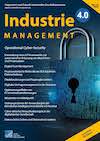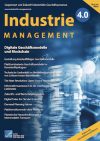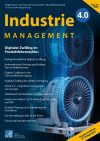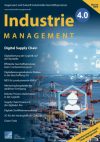Search

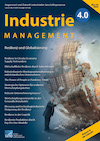
Bibtex
Cite as text
@Article{Hohenstein,
Cite-key = "Hohenstein2023TheP",
Year= "2023",
Number= "4",
Volume= "IM 39",
Pages= "25-30",
Journal = "Industry 4.0 Management",
Title= "The Power of People in Pandemic Times – Driving Supply Chain Resilience through Corporate Culture",
Author= "Nils-Ole Hohenstein, Department of Supply Chain Management and Logistics, Cooperative State University (DHBW) Mannheim, Germany",
Doi= "https://doi.org/10.30844/IM_23-4_25-30",
Abstract= "The assertion “Our people are what set us apart from our rivals” is a common
statement made by nearly every company, highlighting the significance of
their people as the most valuable asset. Similarly, a corporate culture emphasizing
risk awareness and learning from experiences has played a key role in
shaping supply chain resilience (SCRES) amidst competitive dynamics in
response to the COVID-19 pandemic. Employee engagement, communication,
and collaboration, as dimensions of SC risk awareness, determine the
effectiveness of firms’ cultures in handling large-scale disruptions with robustness
and agility. Additionally, the COVID-19 crisis has had a positive
impact on firms’ learning orientation. The crucial necessity of digital supply
chain (SC) transformation to enhance SCRES under pandemic conditions has
further reinforced the need for dynamic adaptation and reconfiguration of
firms’ culture and employee skillsets through digital upskilling.",
Keywords= "COVID-19 pandemic, supply chain resilience, supply chain disruption, culture, learning, digital upskilling, digitalisation, transformation",
}
Nils-Ole Hohenstein, Department of Supply Chain Management and Logistics, Cooperative State University (DHBW) Mannheim, Germany(2023): The Power of People in Pandemic Times – Driving Supply Chain Resilience through Corporate Culture. IM 394(2023), S. 25-30. Online: https://doi.org/10.30844/IM_23-4_25-30 (Abgerufen 24.02.26)
Open Access
Abstract
Abstract
The assertion “Our people are what set us apart from our rivals” is a common statement made by nearly every company, highlighting the significance of their people as the most valuable asset. Similarly, a corporate culture emphasizing risk awareness and learning from experiences has played a key role in shaping supply chain resilience (SCRES) amidst competitive dynamics in response to the COVID-19 pandemic. Employee engagement, communication, and collaboration, as dimensions of SC risk awareness, determine the effectiveness of firms’ cultures in handling large-scale disruptions with robustness and agility. Additionally, the COVID-19 crisis has had a positive impact on firms’ learning orientation. The crucial necessity of digital supply chain (SC) transformation to enhance SCRES under pandemic conditions has further reinforced the need for dynamic adaptation and reconfiguration of firms’ culture and employee skillsets through digital upskilling.
Keywords
Schlüsselwörter
COVID-19 pandemic, supply chain resilience, supply chain disruption, culture, learning, digital upskilling, digitalisation, transformation

 Deutsch
Deutsch
